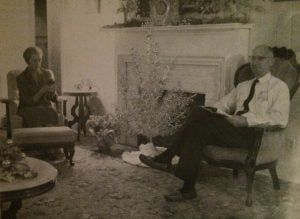The Faces of Grief

She came into the office clutching a small piece of cloth in her hands, working the material between her fingers and staring vacantly into space. The secretary approached the counter and asked if she could help but there was very little response. After a few seconds, the young lady looked at the material. She wanted it in his casket. The secretary nodded in understanding. “Do you have a special place in mind?” Silence filled the office as she stroked the material, still vacantly staring. “Would you like it in his hands?” At that suggestion her faced turned up and her eyes focused. “Yes. Yes, please.” So the secretary took the small corner of what must have been a very special blanket, and the young lady left.
She had come to pick up death certificates, but despite the lack of blinding light in the office, her dark glasses remained in place. I handed them to her and asked if she needed anything else and, although her lip quivered, no words came in response. She simply removed her glasses and revealed eyes red and swollen from crying—so I reached for our grief counseling brochure and the counselor’s card. Call him, I begged. He works for us so there’s no charge for his services and he’ll meet with you whenever you would like . . . and he’ll listen and not tell the world what you said. But she couldn’t. Not right now. She couldn’t talk to anyone without crying. She slipped her glasses back into place, picked up the material I had placed on the counter, and left.
He came in to raid the candy bowl that occupies one corner of the front counter and, while a close family member of his wasn’t the beginning of the conversation, it eventually worked its way in that direction. Their downward spiral had begun years before, resulting in an abundance of negative changes in their life, and now they had almost given up completely. We listened as he spoke, his concern and dismay evident, and as he finished I realized that everything began with the death of that person’s spouse—and I said as much. For a brief moment he looked at me intently, considering my observation, and then he agreed. So once more I pulled our aftercare brochure from its home and our counselor’s card from its holder and suggested that he pass them along and insist that a phone call be made—at least one. He took the material, expressing hope that perhaps this might provide a turning point, and then he left.
I hadn’t gotten to visit with her in what seemed like forever, which was no one’s fault but my own, but a tea we were both attending provided the opportunity. She and her husband had been some of my parents’ best friends and I had grown up with their children. He had died earlier this year and, when I asked how she was, her very matter-of-fact response was ‘Terrible.” She couldn’t get over losing him—and I assured her she wasn’t supposed to. They had spent too many years together in life for him to be easily dismissed in death. We continued our visit until someone else approached and I made my way to the door.
Several times in the last few years, we’ve been blessed to see our community come together in the aftermath of tragedy. When unexpected, heartbreaking deaths occurred people had a need to help, but what could they do? They might not even know the family that had suffered the devastating loss, but they wanted to do something. So our phone would start ringing or the office door would open more frequently as person after person contributed to the cause. It might be a credit card payment, possibly called in because the donor couldn’t make their way to the funeral home. It might be a check in the mail or cash brought through the door, but the donations would come so quickly and so abundantly that often the funeral bill was paid in full before the family even made arrangements. Those donations came because our community–in shock and grieving–wanted desperately to help . . . and this was literally all they knew to do.
These are the faces of grief . . . all so different . . . each responding to loss in their own way . . . each trying to cope with the pain and the heartache as best they can. Some are stronger than others, but that doesn’t mean they don’t need help. Some are lost and floundering, searching for something . . . anything . . . that will take away the pain. What they don’t realize is that nothing ever will. Even Time, although it can be their friend, isn’t a cure for grief. Whether it’s been a day or a year or a decade, there will be moments when the grief is as fresh as it was in the minutes immediately after Death staked his claim. So please, when you believe it’s time someone “got over” losing a large part of their life, just remember . . .
. . . that day will never come.
The post The Faces of Grief appeared first on Shackelford Funeral Directors | Blog.












